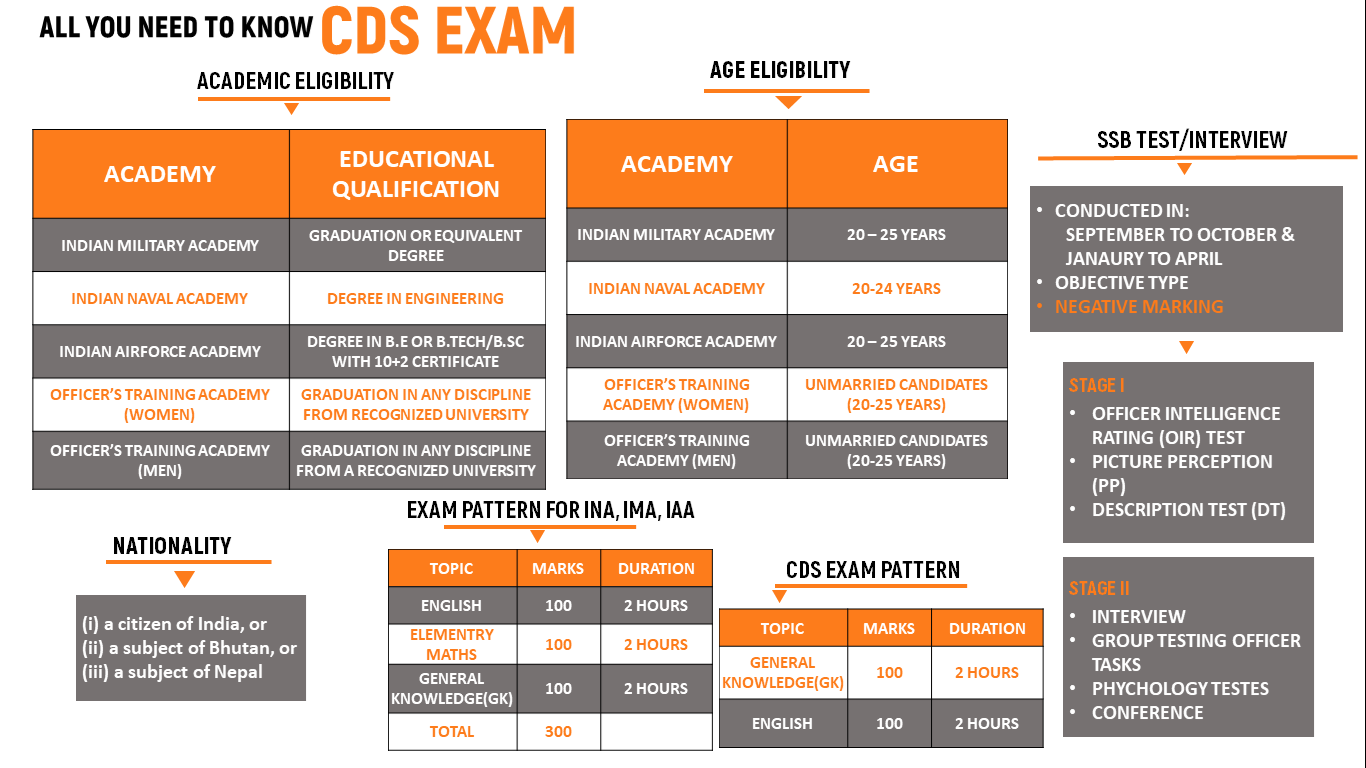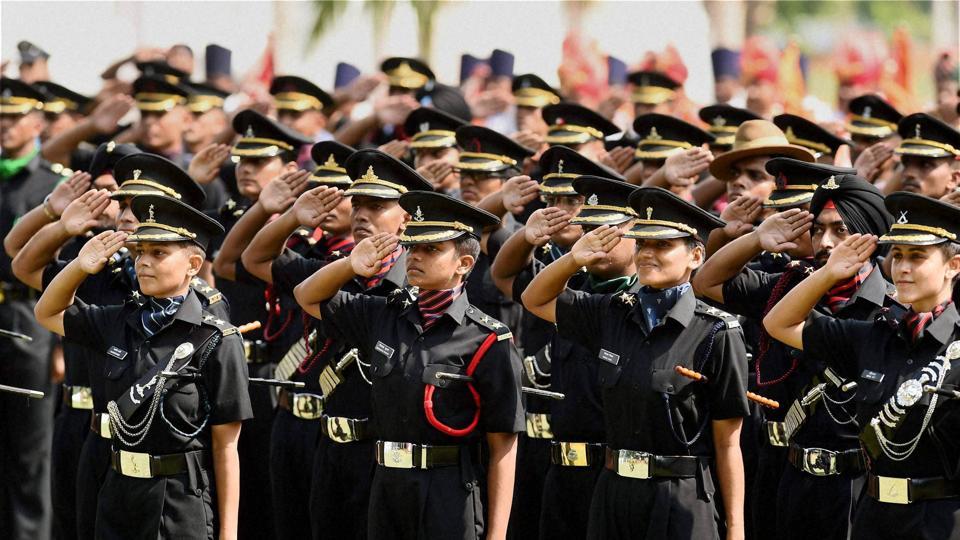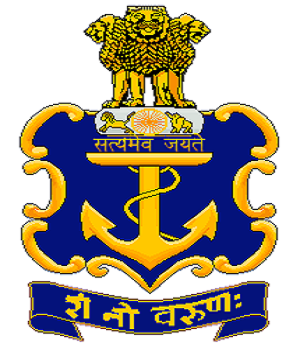

CDS examination is held for recruiting candidates for course conducted by Indian Military Academy (IMA),
Indian Naval Academy (INA), Air Force Academy (AFA) and Officers training Academy (OTA). CDS Exam is conducted twice in a year.
It essential to understand why the soldier (in the broader sense) is pivotal for the wellbeing of a nation-state.
It is said “The true soldier fights not because he hates what is in front of him, but because he loves what is behind him”
Today in a globalized and interdependent world, Nation-building has become even more relevant. Nation states
are political units in an international system and they represent the citizens aspiration to be grouped in a
single political unit that would in turn act as an instrument to achieve, life, liberty and pursuit of happiness.
So the process of Nation Building by any nation aims at the unification of the people within the state so that
it remains politically stable and viable in the long run.
Preparing for CDS is not difficult. You have to outline the syllabus and manage the schedule and design the preparation according to it.
After seeing the bulk of CDS syllabus, most candidates get disheartened. But it's not that
huge as most of the basic concepts are from the subjects studied in school and college.
To crack the examination, one should study smart. For this, the aspirant should divide the subjects into manageable chunks.
| Topic | Marks | Duration |
|---|---|---|
| English | 100 | 2 Hours |
| Elementary Maths | 100 | 2 Hours |
| General Knowledge (GK) | 100 | 2 Hours |
| TOTAL | 300 |
For the three above mentioned Academy we have three sections in the written examination which is of total 300 marks.
| Topic | Marks | Duration |
|---|---|---|
| General Knowledge (GK) | 100 | 2 Hours |
| English | 100 | 2 Hours |
CDS written entrance examination is conducted by UPSC twice a year. The exam is held in the months of February and November. Notification for the exam appears in the month of Nov for the February exam and in the months of Aug for the November exam. Candidates must apply to sit for the examination, online on the UPSC website after notification is released by UPSC.
A candidate must either be:
| Academy | Educational Qualification | Age Group |
|---|---|---|
| Indian Military Academy | Graduation or Equivalent Degree | 20-25 years |
| Indian Naval Academy | Degree in Engineering | 20-24 years |
| Indian Airforce Academy | Degree in B.E or B.tech/B.sc with 10+2 Certificate | 20-25 years |
| Officer’s Training Academy (Women) | Graduation in any discipline from recognized University | Unmarried Candidates (20-25 years) |
| Officer’s Training Academy (Men) | Graduation in any discipline from a recognized university | Unmarried Candidates (20-25 years) |
The Service Selection Board (SSB), set up by the Ministry of Defence, undertakes a combined interview to evaluate prospective candidates for recruitment in the Army, Navy and Air Force. The benchmarks on which the candidates are assessed include intelligence, personality, psychology, compatibility and potential. Hence, mental preparation holds prominence over physical preparation, although physical fitness will be an added advantage.
The five-day personality and intelligence test schedule is as under:
Many candidates think that with bookish and hear-say knowledge, they can clear
the SSB without any help. But, it is recommended that a candidate undergo proper coaching to prepare him/her for upcoming SSB interview.
Having an optimistic approach in the SSB interview is the most significant factor, which is usually not taken
heed of by SSB aspirants sometimes. The basic thing you need to understand here is that whenever you are shown
any picture during PPDT or asked some personal questions during the personal interview session, the examiners
are trying to study characteristics of your personality.
Inculcating OLQ like Leadership, Decision making, Self-confidence, Determination, Power of Expression, Effective Intelligence, Reasoning Ability, Courage, Social & Organizational Ability, Influential, Spontaneous, Stamina, Cooperation


